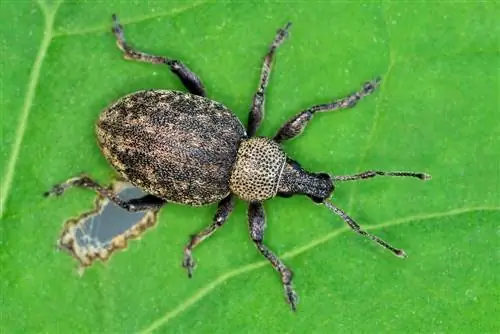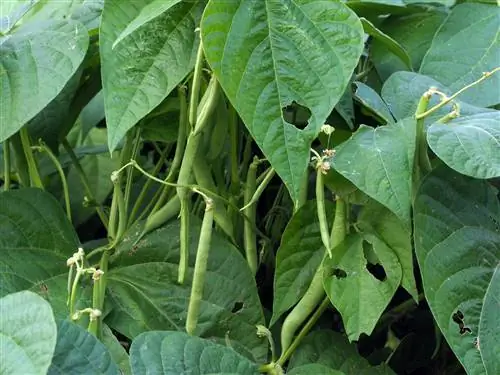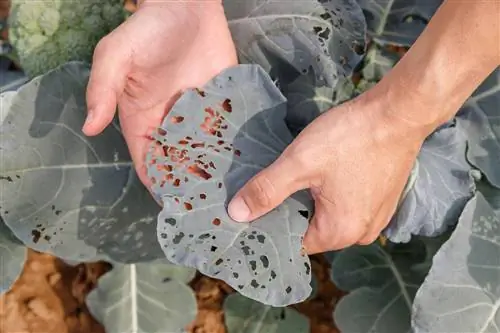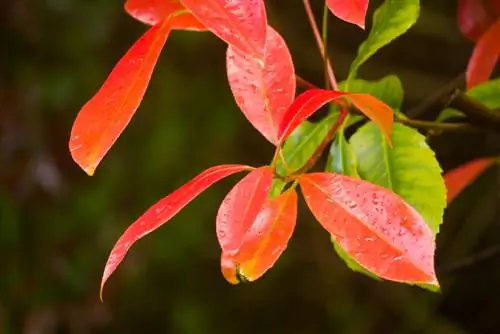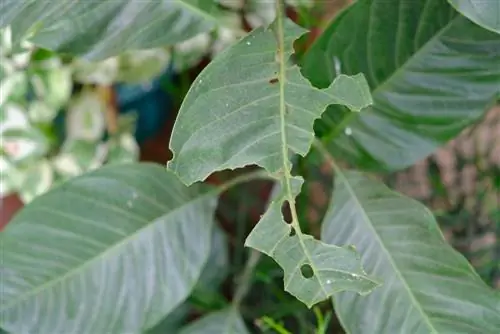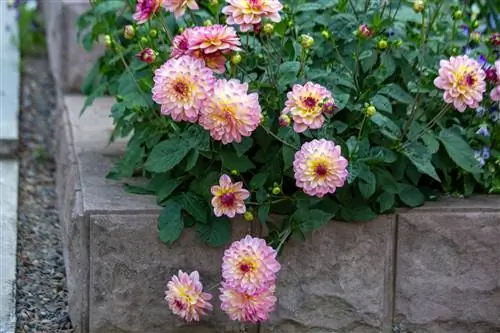- Author admin leonars@hobbygardeners.com.
- Public 2023-12-16 16:46.
- Last modified 2025-01-23 11:21.
When summer begins, unsightly changes appear on the leaves of the loquat. These are the noticeable traces of pests that feed on the leaf mass. But these dreaded pests can only survive under certain conditions.
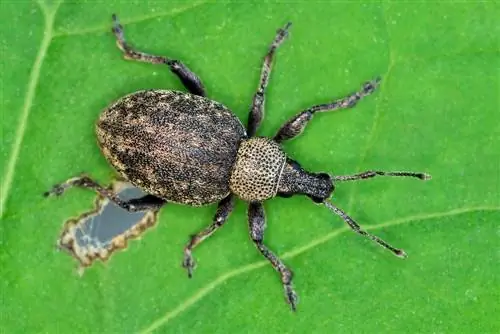
What to do if loquat leaves are eaten?
If loquat leaves are eaten, it is usually the pest weevil. It can be controlled using black weevil traps, nematodes in irrigation water or manual collection. Environmentally friendly plant strengtheners can be used as a preventive measure.
Most common cause
Black weevils prefer to feed on the leaves of evergreen plants such as the loquat. The traces of their feeding can be seen on the edge of the leaf, which has been eaten away in a crescent shape. Since the black weevil is nocturnal, it is difficult to spot it during the day. His search for leaf tissue begins in May and continues until July. Although the beetle hardly finds suitable living conditions in the heavy and mixed garden soil, it causes just as much damage to the cotoneasters in the open field as it does to the shrubs planted in containers.
The black weevil finds optimal conditions here:
- in very light and humus-rich soils
- in substrate rich in peat and compost
- in bog beds, balcony boxes and pots
Pest Control
Since the beetles look for shelter during the day, black weevil traps (€28.00 on Amazon) are an effective control method. The traps consist of a wooden board with grooves into which a gel containing nematodes is injected. The SC nematodes of the species Steinernema carpocapsae infect the beetles and reduce their numbers by 80 to 100 percent in two weeks.
Black weevils lay eggs on the ground all summer long. Give the plants irrigation water that has been enriched with nematodes. SK nematodes of the type Steinernema kraussei, which are active at temperatures between eight and twelve degrees Celsius, or HM nematodes of the genus Heterorhabditis, which require temperatures of over twelve degrees Celsius, are suitable for this. The nematodes infect the beetle's larvae.
Search your plants at dusk and collect the beetles from the plant and the ground. When threatened, the black weevils drop to the ground and play dead.
Preventive measures
Many purchased plants can be infected by the pest. When purchasing, pay attention to possible signs of feeding on leaves and roots. If you buy your plants from specialist companies, you have a better chance of getting pest-free plants. Environmentally friendly plant strengtheners increase the resistance of the loquats. Brews with tansy, nettle or garlic broth are ideal. Regular watering with the broth deters the beetles and supports your plants.

